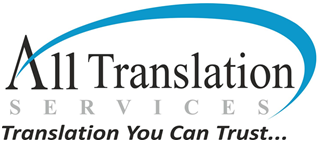Advancements in Language Translation Services Propel Canada's Global Connectivity
___In a significant stride towards fostering global communication and inclusivity, Canada is witnessing a surge in cutting-edge language translation services. The nation’s commitment to linguistic diversity is now being complemented by innovative technologies that facilitate seamless communication across languages.
Recent developments in artificial intelligence and machine learning have revolutionized the landscape of language translation services, making them more accurate, efficient, and accessible than ever before. Canadian businesses, government agencies, and individuals are embracing these advancements to break down language barriers and enhance collaboration on both national and international fronts.
Key Highlights:
AI-Powered Translation Platforms: The integration of artificial intelligence (AI) in language translation services has resulted in highly sophisticated platforms capable of translating content with remarkable accuracy. These AI-driven solutions adapt to context, idiomatic expressions, and evolving linguistic nuances, providing a more natural and contextually appropriate output.
Real-Time Translation Tools: The demand for real-time translation tools has soared, especially in sectors such as business, healthcare, and education. Canadian companies are adopting advanced communication tools equipped with instant translation features, facilitating effective multilingual communication in meetings, conferences, and virtual collaborations.
Government Initiatives: The Canadian government has recognized the importance of language translation services in fostering inclusivity and global partnerships. Initiatives have been launched to support research and development in language technology, ensuring that the nation remains at the forefront of language translation innovations.
Integration of Indigenous Languages: Canada’s rich tapestry of Indigenous languages is gaining prominence in the realm of language translation services. Efforts are being made to integrate these languages into translation platforms, preserving and promoting cultural heritage while ensuring effective communication within Indigenous communities and beyond.
Enhanced Accessibility: Language translation services are becoming more accessible to individuals with diverse needs. Mobile apps, web-based platforms, and assistive technologies are being developed to cater to the specific requirements of users, including those with disabilities.
The surge in certified language translation services in Toronto is aligning with Canada’s commitment to multiculturalism and fostering connections with the global community. As these technologies continue to evolve, the nation stands poised to play a pivotal role in breaking down linguistic barriers and promoting cross-cultural understanding on the world stage.
